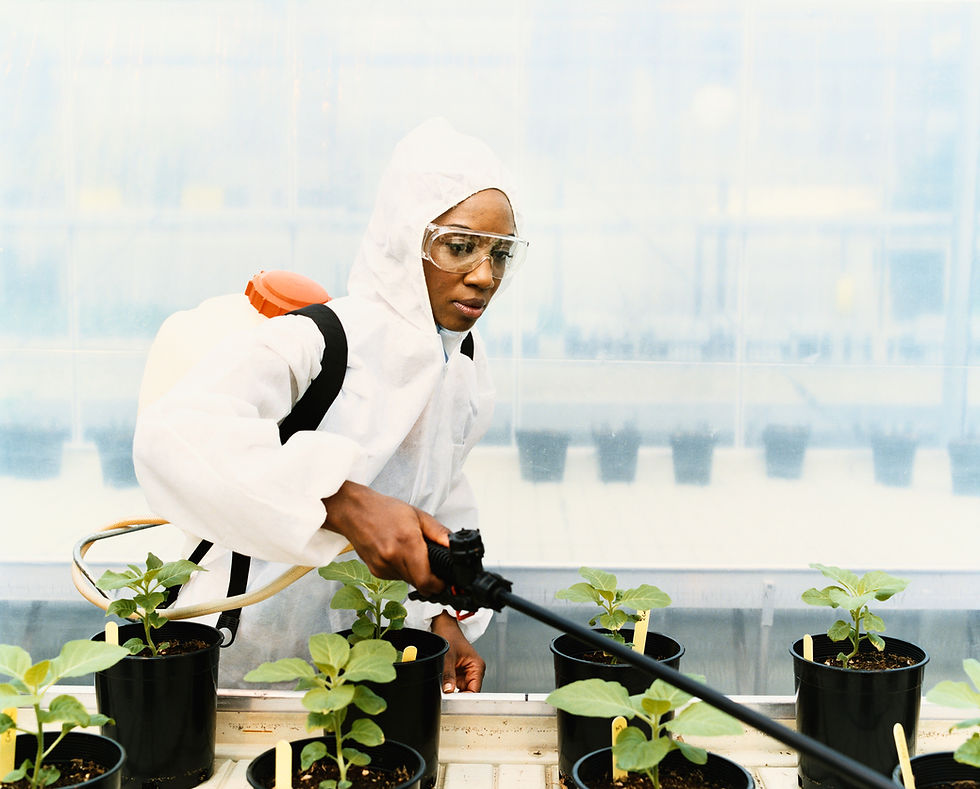Is Lab-Grown Meat Really More Sustainable Than Beef? New Research Says “Not Yet”
- Malik Miller

- Jul 3, 2025
- 2 min read
Lab-grown meat — also known as cultivated or cell-cultured meat — has made headlines for years as a supposedly climate-friendly alternative to traditional beef. But new research from the University of California-Davis challenges that narrative in a big way.
While marketed as a cleaner, greener way to feed the world, the latest data shows that lab-grown meat may not be the environmental breakthrough it’s been promised to be.

🔬 The Science Behind Lab-Grown Meat’s Carbon Footprint
In a recent study, researchers at UC-Davis dug deep into how lab-grown meat is produced — focusing specifically on the energy and greenhouse gas emissions involved in each stage. What they found is eye-opening:
➤ Lab-grown meat produced using pharmaceutical-grade processes can emit 4 to 25 times more CO₂ than retail beef, per kilogram of meat.
This is because the current process requires purified growth media, the same used in vaccine and pharmaceutical manufacturing. It’s resource-intensive, expensive, and far from scalable under food production conditions.
⚖️ Transparency Gaps vs. Cattle Industry Data
One major issue: most lab-grown meat companies haven’t released enough data about their actual environmental impact.
In contrast, the cattle industry is heavily monitored and regulated. Emissions data from beef production is publicly available through the USDA and EPA — and it shows impressive progress:
U.S. cattle production accounts for just 2% of total greenhouse gas emissions
Since the 1970s, beef producers have increased production by 60% per animal while cutting emissions by 40% per pound of beef
🚜 Conventional Beef Still Leads on Sustainability
As Dr. Edward Spang from UC-Davis put it:
“Cultured meat is not inherently better for the environment than conventional beef. It’s not a panacea.”
The study concluded that even in best-case scenarios — where lab meat switches from “pharma” to “food-grade” systems — efficient beef production still outperforms cultured meat in most sustainability categories.
Meanwhile, many cattle operations are:
Improving herd genetics
Using precision grazing systems
Implementing feedyard technologies that reduce resource use and emissions
These are real, proven strategies making a difference today — not future hypotheticals.
🧬 Is There a Future for Cultivated Meat?
The researchers do note that if the lab meat industry can overcome its technological hurdles and shift to using food-grade processes, there may be a future where cultured meat becomes competitive. But that day isn’t here yet.
And scaling up too quickly — without environmental safeguards in place — could backfire.
🛑 Bottom Line: Consumers Deserve the Full Picture
Cattle producers aren’t afraid of competition. But we believe in honesty and transparency, especially when it comes to what’s on your plate.
If alternative protein companies want to be taken seriously, they need to publish their environmental data — just like the ag sector already does.
Until then, the most climate-smart burger is still coming from the pasture, not the lab.




Comments